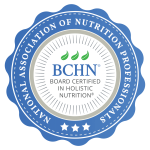What is cardiometabolic health?
A recent study has shown that more than 93% of the US population suffers from a cardiometabolic health issue, which suggests a devastating health crisis. Could this be one of the main root causes of chronic health issues?
This starter guide will help you understand what cardiometabolic health is, why it’s essential, and how to improve your metabolic health, glucose, and fat metabolism for greater vitality consistently.
Cardiometabolic health is the term used to refer to the critical relationship between heart health and your body’s metabolic functions. Metabolic dysfunction is also known as metabolic syndrome. Cardio metabolism describes how the two link together, how they interact, and how changes in one can significantly affect the other.
Cardiometabolic imbalances occur when there is an imbalance in your body’s processes, leading to insulin resistance. Insulin is a hormone that helps regulate blood sugar levels, but when cells become resistant to its effects, it causes elevated blood sugar levels.
Other concerns may include problems with fatty acids, belly fat, and elevated triglycerides. It also affects issues with hypertension (high blood pressure) and inflammation.
Unfortunately, your medical doctor is not likely to help you solve your metabolic syndrome challenges or other chronic diseases. The traditional medicine strategy often relies on offering medications that can be helpful in the short term but may come with unwanted side effects. It is important to consider a holistic approach that addresses the underlying root causes of chronic diseases for long-term solutions.
Doctors do not focus on the underlying lifestyle issues driving cardiometabolic dysfunction. Functional Medicine, as a root-cause systems biology approach to your health, is positioned perfectly to help people with their cardio metabolism.

Cardiometabolic diseases (CMDs) are the number-one cause of death in the world. Post-menopause women catch up with men in the number who die from heart disease. Quite frightening statistics, I am sure you would agree.
Cardiometabolic functional medicine solutions at Metabolix Health include:
- Metabolic syndrome
- Insulin resistance
- Blood sugar issues
- Hormone imbalances
- Fatty Liver
- Brain Fog and memory issues
- Sleep issues
- Thyroid imbalances
- Blood pressure regulation
The common risk factor in all of these situations is inflammation, usually chronic and systemic. Insulin hormone issues and metabolic dysfunction are related to inflammation, and metabolic dysfunction relates to fat metabolism, carbohydrate metabolism, and protein synthesis.
Common Risk Factors for Cardiovascular Disease
Recognize that the adversaries of your heart often hide in the darkness, and your first line of defense lies in identifying these culprits. Everyday habits and conditions that we may sometimes overlook or underestimate in our lives can serve as common risk factors for cardiovascular disease.
- Sedentary Lifestyles: Modern comforts have led to increased inactivity — remember, your heart longs for movement.
- Unmanaged Stress: Chronic stress is like a slow-burning flame on a fuse leading to your heart — managing it isn’t just calming, it’s lifesaving. Women struggle with this more than men.
- Poor Dietary Choices: Those high in unhealthy fats, sugars, and salts aren’t just a dance with taste bud delight but may lead to a tango with heart trouble down the road.
- Smoking: Goes without saying rally that it’s a venomous kiss to your heart health.
- High Blood Pressure: Quietly undermines the fortress of your heart’s well-being.
- Genetic Predisposition: Awareness is your mightiest weapon here.
- Diabetes: A sugar-coated threat that puts your heart on the front lines of risk. One out of 3 Americans is likely to fall victim to diabetes at some time in their lives. This is an outrageous indictment on our medical system.
By shedding light on these common risk factors and taking proactive steps to combat them, you pave the way to a heart-healthy future.
Learn About Metabolic Syndrome And Cardiometabolic Health
Metabolic syndrome is a cluster of conditions, including abdominal obesity, high triglycerides, cholesterol abnormalities, hypertension, and insulin resistance that increase your risk for coronary artery disease and other metabolic health problems.
These factors contribute to a person’s larger risk of poor heart health, stroke, and diabetes. Insulin resistance, a key component of metabolic syndrome, affects the body’s ability to regulate blood sugar levels and can lead to the development of type 2 diabetes.
Smart lifestyle choices, such as maintaining a healthy diet and engaging in regular physical activity, can help reduce your risk of developing metabolic syndrome and managing chronic diseases. Let’s learn more about the metabolic health pathways in your cells as part of your metabolism.
Mitochondrial dysfunction
We have come to know the mitochondria as the powerhouses of your cells. Our mission is about improving your cellular energy production and individual cell function. ATP, or adenosine triphosphate, is the energy currency of every cell in your body.
Cardiometabolic dysfunction has dysfunctional energy metabolism at its core or metabolic dysfunction in functional medicine speak!
Mitochondrial dysfunction is a cause of inflammation, a common factor in all chronic diseases.

Mitochondria produce less ATP and more ROS, contributing to damage and inflammation that can snowball throughout the body. Aside from the natural aging process, other things send mitochondrial function in the wrong direction, like smoking, stress, lack of sleep, environmental pollution like mold and smog, and eating a diet rich in refined sugar that causes insulin resistance and metabolic syndrome.
Glycolysis
Glycolysis is the metabolic pathway by which we convert glucose to form energy.
High carbohydrate metabolism markers indicate that environmental toxins are negatively affecting your mitochondria.
Beta oxidation
Fatty acids are the preferred energy for the heart. Beta oxidation occurs in the mitochondria via the Krebs cycle and the electron transport chain. L-carnitine is an essential molecule for this process.
Intermittent fasting, caloric restriction, and zone 2 exercise are ways to build more vital mitochondria. Eliminate the things causing mitochondria to decline, such as air, water, and food toxins. Use air filters, buy organic food, and focus on a Mediterranean diet.
Taking care of your mitochondria will allow you to increase your energy, lose weight, and age well.
Two molecules that boost metabolism are alpha lipoic acid and acetyl-L-carnitine.
Cardiometabolic Health Problems Arising from inflammation

Stop thinking about cholesterol being the criminal, and start thinking about your systemic inflammation levels.
Get your C-reactive protein and fibrinogen levels checked. C-reactive protein should be below 1 mg/l from a functional medicine standpoint. if it is elevated, check in with your medical doctor to review what is happening since this is severe inflammation.
Fibrinogen is a clot-regulating protein and a biological marker for the stickiness and viscosity of your blood. An elevated level is a risk factor for cardiovascular disease.
Post-menopausal women are at a high risk of heart attacks. Therefore, it is crucial to check these blood markers with your doctor, monitor risk factors such as blood pressure, and consider incorporating weight loss strategies. However, lifestyle modification strategies are best discussed with a functional medicine practitioner, since this is what they do.
Traditional medicine does not have a good track record of managing chronic health conditions and this is the key reason why functional medicine is such a fast-growing service in the United States because it focuses on lifestyle and the underlying root causes of your health.
As a woman, navigating the hormonal changes of peri-menopause and menopause, it’s vital to be aware that you have an increased risk of cardiovascular diseases.
These changes in health risk stem from a combination of hormonal changes and increases in metabolic risk factors. The absence of estrogen, a hormone known for its protective effects on the heart’s inner layer, can make you more susceptible to the development of heart conditions
Potassium is essential for thinning the blood, so ensuring you are getting enough potassium in your diet is vital.

When your inflammatory pathways increase, cholesterol molecules are oxidized, triglycerides form and blood vessel walls are damaged. Inflammation is a recipe for disaster for your cardiometabolic health.
Cholesterol
Lowering cholesterol is not the goal, and this is the old heart myth perpetuated by Ancel Keys starting in the 1940s, and still followed by some mainstream doctors today despite scientific studies debunking this theory. The goal should be getting to the root cause of glucose metabolism, metabolic syndrome, and insulin resistance. A more accurate way of assessing dyslipidemia is an advanced lipid profile that includes lipid particle sizes and density.
Cholesterol makes your steroid hormones, so don’t try reducing cholesterol with statins before addressing lifestyle factors. To lower your risk factors, provide your body with essential minerals, omega-3s, vitamins, and antioxidants, and follow an anti-inflammatory diet.
Triglyceride oxidation is the oxidation of fatty acids. The liver is the central organ for fatty acid metabolism, and fatty acids are eliminated by oxidation. Gastric lipase breaks down triglycerides into diglycerides and fatty acids in the stomach.
Exercise stimulates the breakdown of triglyceride molecules into fatty acids. Regular physical activity can also help to lower blood pressure.
Cardiometabolic health is like navigating an intricate network of waterways — you need to be aware of potential hazards that could take you off course. Recognizing risk factors is your compass to proactive health.
One such risk is insulin resistance which can be a stealth adversary, often going unnoticed until it affects your health significantly. It’s vital to understand and monitor your blood sugar levels consistently since elevated levels over time can lead to serious health concerns.
Gut health

There is a proven connection between your gut and cardiometabolic disease risk. Certain negative gram bacteria can leak through the lining of your gut wall (leaky gut), enter the bloodstream, and cause inflammation. These are known as endotoxins, and your liver does a great job of eliminating or detoxing them from your system. But what happens when your liver is already sluggish?
You get a build-up of toxins from internal and external sources that cause systemic inflammation.
This systemic inflammation can cause damage to the endothelial cells lining the arteries and blood vessels.
Short-chain fatty acids (SCFA) such as butyrate, propionate, and acetate can improve gut health and heart disease risk. Bile acids are crucial in glucose metabolism, cholesterol, and fat metabolism.
Insulin
Eat an anti-inflammatory diet and avoid those sugary treats as much as possible. Avoid carbonated drinks and fruit juices.
Excess sugar in the diet is a recipe for inflammatory disaster. Sugar raises insulin levels, irritates blood vessel linings, and contributes to high blood pressure, metabolic syndrome, and increased risk of cardiovascular diseases and chronic diseases.
Women face unique challenges in their journey towards cardiometabolic health. Factors such as hormone fluctuations and pregnancy can have a profound impact on insulin sensitivity, increasing the risk of conditions like metabolic syndrome and heart disease.
This risk is further amplified after menopause, as changes in body composition and insulin signaling become more pronounced.
Sleep apnea

Sleep apnea is a form of sleep deprivation. You wake up several times during the night lacking breath and oxygen, of which you may not be aware. Sleep apnea drives weight gain and blood sugar imbalances which is a vicious cycle because these are two of the underlying causes of sleep apnea.
Additionally, sleep apnea increases the risk of cardiovascular disease, such as diabetes, high blood pressure, and heart disease.
80% of sleep apnea cases don’t receive a medical diagnosis, meaning people don’t realize they are suffering from this. Sleep apnea is more common in post-menopausal women when reproductive hormone levels drop, which may contribute to increased cardiovascular risk factors in post-menopausal women.
With sleep apnea disrupting the balance of blood oxygen levels, it not only affects insulin resistance but also paves the way for weight gain, tipping the scales toward metabolic distress. The link between sleep apnea and metabolic syndrome is undeniable, highlighting the need for early intervention and treatment.
Lifestyle Behavior Related To Improved Cardiometabolic Outcomes
Enhancing your body’s detox pathways and reducing your toxic burden may help with inflammation, metabolic health, and immunity.
Lifestyle factors like healthy, nutrient-dense whole foods, physical activity, stress management, and getting enough sleep all play crucial roles in maintaining and improving cardiometabolic health.
Hydration

I cannot emphasize enough how important hydration is to your body, especially for metabolic health. Most people think they are staying hydrated when they are dehydrated; dehydration causes thick blood, and hydration keeps your blood flowing.
Dental Health Disparities
Gum disease, cavities, and periodontal disease are risk factors for cardiometabolic health and insulin resistance issues, which are associated with metabolic syndrome. Dentists discovered over 50 years ago that cavities and gum disease are chronic bacterial conditions.
Check your stress levels
Stress causes many health concerns, including cardiometabolic health issues. Women don’t adapt to stress as well as men. A certain amount of stress is necessary for a productive life but we need to manage it positively.
Find time for self-care, which is never selfish. Taking time away for a reset is a great way to keep stress levels under control. Anger and stress stoke inflammation in the arteries and blood.
When you think of cardiovascular disease risk factors, stress might not be the first thing that comes to mind—but its effects are far from negligible. Constant stress generates a storm within your body, triggering the release of adrenaline and cortisol which can lead to increased heart rate and blood pressure, laying the groundwork for heart disease.
Movement
Regular movement is vital for cardiometabolic health. You want to increase the lactic acid burn and maximize muscle contractions and release of muscle enzymes. The goal is to improve overall body biochemistry, blood pressure, cardiovascular health, and vitality. Aim for 4 hours per week of low-impact movement.
Embracing an active lifestyle can make a huge difference in reducing the risk factors for cardiovascular disease. Regular exercise helps manage weight, lower blood pressure, and keep cholesterol levels in check.
Earthing/grounding and sunshine

If you live in a warm climate, sit outside with bare feet on the ground. Grounding increases the surface charge on red blood cells and thereby reduces blood viscosity and clumping. This can lower the risk factors for cardiovascular disease.
In the body, the free electrons in the earth have an anti-inflammatory effect because they reduce the free-radical activity that causes inflammation and chronic pain.
Ever walked barefoot on the beach and felt amazing?
Connecting with the earth will increase the body’s exposure to these free electrons and reduce overall inflammation. You can get an earthing sheet to sleep on and ground yourself improving sleep quality.
Effective Nutrients For Cardiometabolic Health
L-carnitine
L-carnitine is known as the energy shuffle nutrient. Acetyl L-carnitine improves depression, sexual dysfunction, and fatigue as we age. Deficiencies can occur due to genetics, carnitine-deficient diets (vegetarians), and nutrient cofactor deficiencies such as B6, folate, iron, niacin (B3), and vitamin C.
Vitamin C
Vitamin C is an antioxidant, and its role in cardiovascular health is immense. Vitamin C neutralizes various reactive oxygen species and recycles important cellular antioxidants.
Vitamin C may improve nitric oxide production of the endothelium, which, in turn, increases vasodilation, reducing blood pressure.
Vitamin E
Vitamin E is a naturally occurring fat-soluble antioxidant that has been proposed as a primary and secondary protection treatment. Vitamin E is classified as an antioxidant because it can scavenge lipid radicals and terminate oxidative chain reactions. This potent ally in your heart health arsenal is more than just a supplement; it lowers the risk factors of having cardiovascular disease.
L-arginine

L-arginine significantly improves endothelial-dependent vasodilation. Vascular senescence contributes to increased risk factors for cardiovascular disease (CVD) with aging.
L-arginine plays a role in numerous physiological processes including nitrogen detoxification, immunocompetence, growth hormone (GH) secretion, and insulin secretion.
Recently, a considerable amount of attention has been placed on the ability of this amino acid to affect vascular endothelial function. L-citrulline is another amino acid that can increase NO(nitric oxide) production, and they are often combined in the same supplement.
Coenzyme Q10
Coenzyme Q10 (CoQ10) is an essential compound of the human body. There is growing evidence that COQ10 is linked to cardiometabolic health. Coq10 is known as the spark of life, and supplementing can be helpful for a variety of chronic and acute conditions.
Magnesium

The role of magnesium in cardiovascular health is well known. Magnesium helps lower the risk factors of cardiovascular disease, including arrhythmias, hypertension, arteriosclerosis, and endothelial dysfunction. It is also helpful for sleep and reducing anxiety due to its mechanism of action on nerve cells, muscles, and blood vessels. The recommended intake of magnesium is 1000 mg per day of magnesium glycinate if you are experiencing metabolic dysfunction.
Conclusion
Many factors influence heart health and cardiovascular disease risks. Functional medicine is the best approach to improving cardiometabolic health and at Metabolix Health we integrate lifestyle transformation with clinical nutrition, personalized food programs, and functional testing. As a virtual functional medicine practice, we provide health consultations for people across the world.



